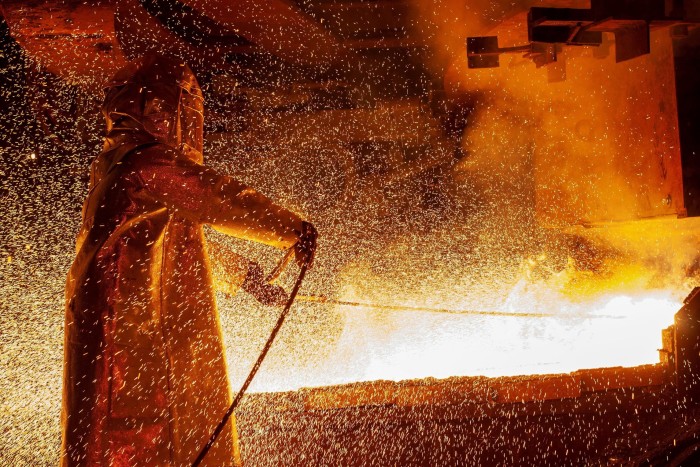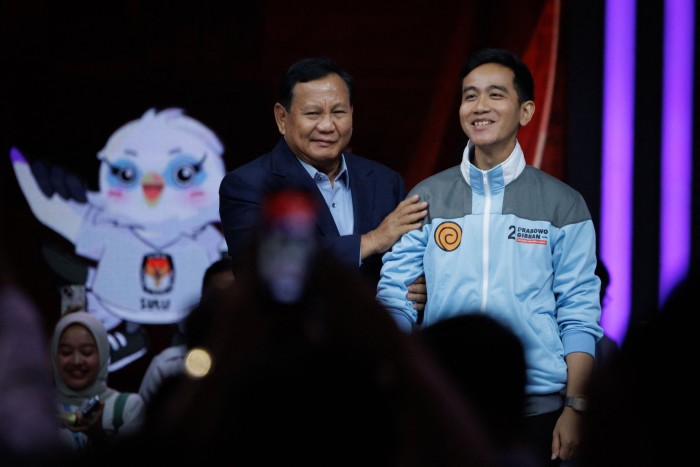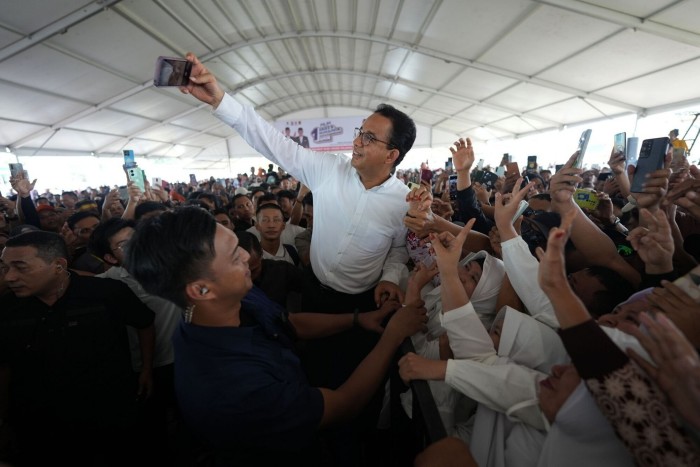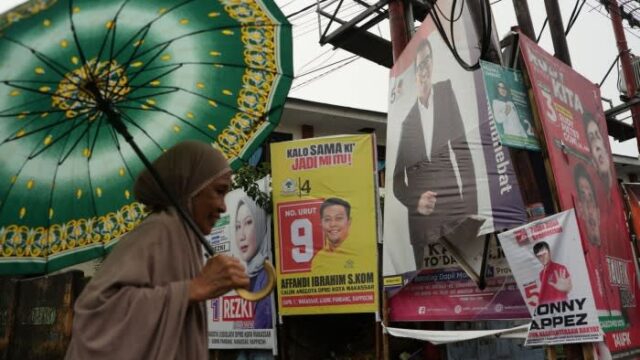When Joko Widodo assumed Indonesia’s presidency in 2014, the country’s exports of nickel, the silver-white mineral vital to electric vehicle batteries, totalled just $1bn.
A decade later, that figure has soared to $30bn — just one sector transformed under his tenure by a boom in demand for next-generation energy.
As Widodo — who is widely known as “Jokowi” — prepares to step down at the end of his second term in October, investors are keenly watching for signs of how his successor will manage south-east Asia’s biggest economy, which the outgoing president has positioned as an emerging powerhouse in green industries.
The general election on February 14, when some 204mn eligible voters will also choose a vice-president and national and regional legislators, will shape the future of Indonesia’s commodities industries, in particular nickel, of which the country has the world’s largest reserves, as well as coal and palm oil.
The leading candidate is Prabowo Subianto, a former army general who has pledged to largely maintain Widodo’s policies, in a reassuring message to foreign businesses.
“Policy continuity is one thing that investors are looking for,” said Lavanya Venkateswaran, senior south-east Asian economist at OCBC. “Building on what President Jokowi has already put in place will be ideal for the economy because he’s already set up very strong foundations.”
Widodo’s aspirations to build an EV ecosystem in Indonesia helped deliver economic growth of about 5 per cent every year of his presidency except during the coronavirus pandemic, remodelling what was once called the world’s biggest invisible nation.

A ban on exports of nickel ore and bauxite, a component of aluminium, forced foreign companies to move processing onshore, pumping billions of dollars into smelters and battery manufacturing facilities. Similar controls on copper are expected to come into effect this year.
The nickel rush triggered a boom in Indonesian capital markets. Listings of nickel producers such as Harita Nickel and Merdeka Battery made Jakarta’s stock exchange one of the top five exchanges by volume globally for initial public offerings last year, according to EY.
Foreign direct investment in the mining and base metals industries hit $16bn in 2022, the most recent year for which data is available, much of it from Chinese companies that dominate Indonesia’s nickel industry, while total FDI reached $45.6bn, a record.
Widodo also focused on infrastructure — building roads, ports and dams across the sprawling archipelago’s 17,500 islands — and social assistance programmes.
But that torrent of investment has slowed in some industries in recent months. Several EV battery makers were in discussions over new investments but holding off until they got a better idea of the new administration’s policies, said Meidy Katrin Lengkey, secretary-general of the Indonesia Nickel Miners Association.
She added that while Widodo’s “downstreaming” policy had been successful, expanding it to other minerals and implementing regulations to prevent environmental harm — which critics say have lagged behind in the heavily polluting processing industries — could help bring in further investment.

Others are moving ahead: leading Chinese electric-car maker BYD last week announced a $1.3bn investment to build an EV factory in Indonesia with a capacity of 150,000 vehicles.
Foreign companies may have to wait for several months if no presidential candidate wins at least 50 per cent of the vote, sending the race to a run-off in June. The winner will take office in October.
Prabowo — who lost elections to Widodo in 2014 and 2019 — has a comfortable lead among the three candidates though he is short of 50 per cent, opinion polls show.
The former officer has backed his former rival’s signature policies such as downstreaming commodities and the construction of a new capital in Borneo that is expected to cost $32bn, a testament to how Widodo’s administration has redefined the country’s political landscape.
“We believe continuity is the best way because of what Jokowi has built for this country,” said Ferry Latuhihin, an economic adviser to Prabowo.

The election is expected to mark the return of Indonesia’s old guard and establish roots of a political dynasty for Widodo, a furniture-maker-turned-mayor and Indonesia’s first president not to hail from the traditional elite.
Prabowo served as a special forces commander under the late autocrat Suharto, who was also his former father-in-law. He was discharged from the military in 1998 over the abduction and torture of political activists by troops under his command. He has also been accused by human rights groups of abuses in Papua and East Timor, claims he has always denied. He was banned from the US for two decades until his appointment as Widodo’s defence minister in 2020.
His running mate is Widodo’s 36-year-old son, Gibran Rakabuming Raka, who was excused from a minimum age requirement of 40 by the constitutional court, then led by Widodo’s brother-in-law, who was forced to step down over the ruling.
While civic society groups have raised concerns about alleged meddling in the election process, the criticism has done little to dent the popularity of the Prabowo ticket, which is polling at about 43-48 per cent, according to recent surveys.
His challengers are former Jakarta governor Anies Baswedan, a vocal critic of Widodo and the new capital, and former Central Java governor Ganjar Pranowo, the candidate for Widodo’s party who has not received the president’s endorsement.
Both are trailing in the polls, with support of about 20-25 per cent, and they have not ruled out allying in the second round to defeat Prabowo, who is hoping Widodo’s tacit support — and the incumbent’s near-80 per cent approval rating — will help elevate him to the presidency on his third attempt.
A Prabowo presidency would be expected to maintain the focus on attracting foreign investment, especially to the commodities sector, said Jeemin Bang, an associate economist at Moody’s Analytics.
“The probability of an economic policy surprise remains low. This should encourage stable economic growth in the years ahead.”




